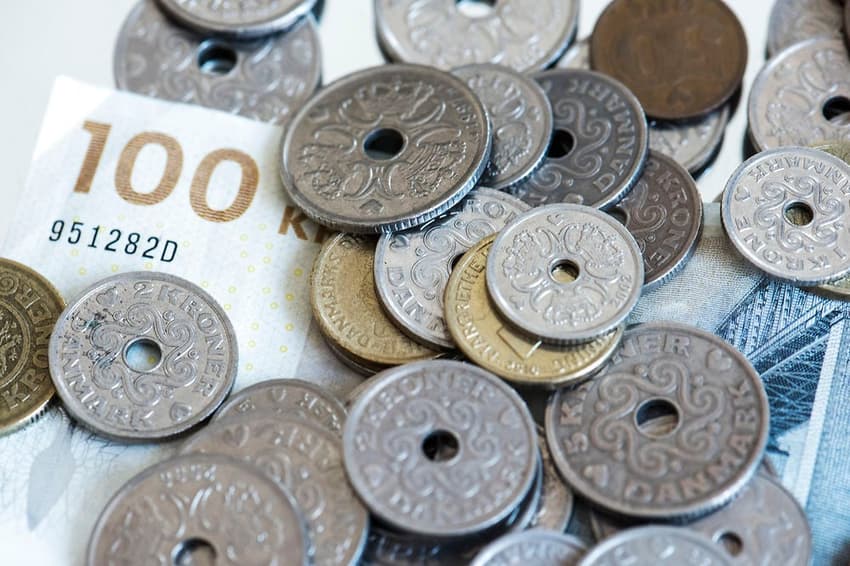Feriepenge: Denmark to release remaining 'frozen' money in coming weeks

Wage earners in Denmark will soon be able to claim the remaining holiday pay or 'feriepenge' which the government decided to release last year in a scheme aimed at boosting the economy during the coronavirus crisis.
The money, which would normally have been payable when leaving the Danish labour market (for example on retirement), can now be claimed early, with many people already having claimed their funds during the first round of payouts last year.
Remaining funds will be made available “in a few weeks”, the Ministry of Employment said in a press statement this week after a majority in parliament voted through the release of the remaining funds.
A total pool of 56 billion kroner (pre-tax) is available to be claimed by those eligible, the ministry said.
“Our hope is that the money will be spent on Danish products and locally in stores and businesses where people live. The payouts from last autumn showed us that around 75 percent claimed their money and the money helped to get turnover moving here and there,” employment minister Peter Hummelgaard said in the statement.
READ ALSO: After Danish payouts to boost economy, what is cash being spent on?
‘Holiday money’ or feriepenge is a monthly contribution paid out of your salary into a special fund, depending on how much you earn.
You can claim back the money once per year, provided you actually take holiday from work.
If you are employed in Denmark, you will be notified when the money can be paid out (this is in May under normal circumstances) and directed to the borger.dk website, from where you claim it back from national administrator Udbetaling Danmark.
Due to a change in the law affecting the way the money is calculated, most people eligible for the holiday money currently have a ‘frozen’ amount from an overlapping period of accrual, which was originally not intended to be paid out until leaving the Danish labour market (for example on retirement or leaving the country).
This was changed earlier in 2020 after the coronavirus lockdown and its resultant economic impact encouraged parliament to pass provisions for the ‘frozen' holiday money to be paid out early.
A total of 108 billion kroner of holiday money reported by employers was “frozen” prior to the conception of the scheme, according to the employment ministry.
Claiming the money at this time is voluntary – it can also be left to be claimed upon leaving the labour market as per the pre-coronavirus rules.
Comments
See Also
The money, which would normally have been payable when leaving the Danish labour market (for example on retirement), can now be claimed early, with many people already having claimed their funds during the first round of payouts last year.
Remaining funds will be made available “in a few weeks”, the Ministry of Employment said in a press statement this week after a majority in parliament voted through the release of the remaining funds.
A total pool of 56 billion kroner (pre-tax) is available to be claimed by those eligible, the ministry said.
“Our hope is that the money will be spent on Danish products and locally in stores and businesses where people live. The payouts from last autumn showed us that around 75 percent claimed their money and the money helped to get turnover moving here and there,” employment minister Peter Hummelgaard said in the statement.
READ ALSO: After Danish payouts to boost economy, what is cash being spent on?
‘Holiday money’ or feriepenge is a monthly contribution paid out of your salary into a special fund, depending on how much you earn.
You can claim back the money once per year, provided you actually take holiday from work.
If you are employed in Denmark, you will be notified when the money can be paid out (this is in May under normal circumstances) and directed to the borger.dk website, from where you claim it back from national administrator Udbetaling Danmark.
Due to a change in the law affecting the way the money is calculated, most people eligible for the holiday money currently have a ‘frozen’ amount from an overlapping period of accrual, which was originally not intended to be paid out until leaving the Danish labour market (for example on retirement or leaving the country).
This was changed earlier in 2020 after the coronavirus lockdown and its resultant economic impact encouraged parliament to pass provisions for the ‘frozen' holiday money to be paid out early.
A total of 108 billion kroner of holiday money reported by employers was “frozen” prior to the conception of the scheme, according to the employment ministry.
Claiming the money at this time is voluntary – it can also be left to be claimed upon leaving the labour market as per the pre-coronavirus rules.
Join the conversation in our comments section below. Share your own views and experience and if you have a question or suggestion for our journalists then email us at [email protected].
Please keep comments civil, constructive and on topic – and make sure to read our terms of use before getting involved.
Please log in here to leave a comment.